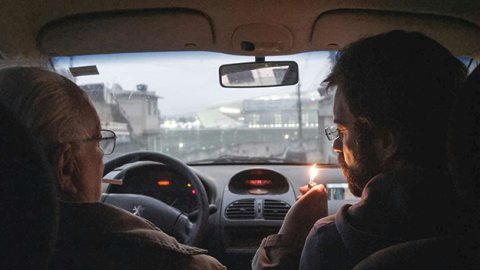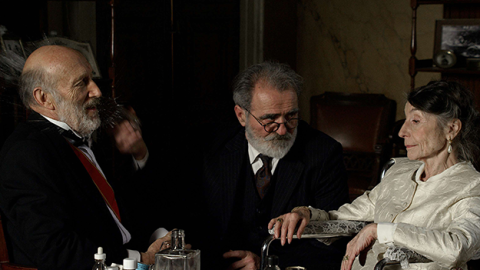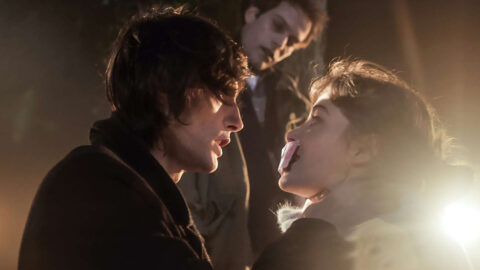By Nick Pinkerton in the November-December 2015 Issue
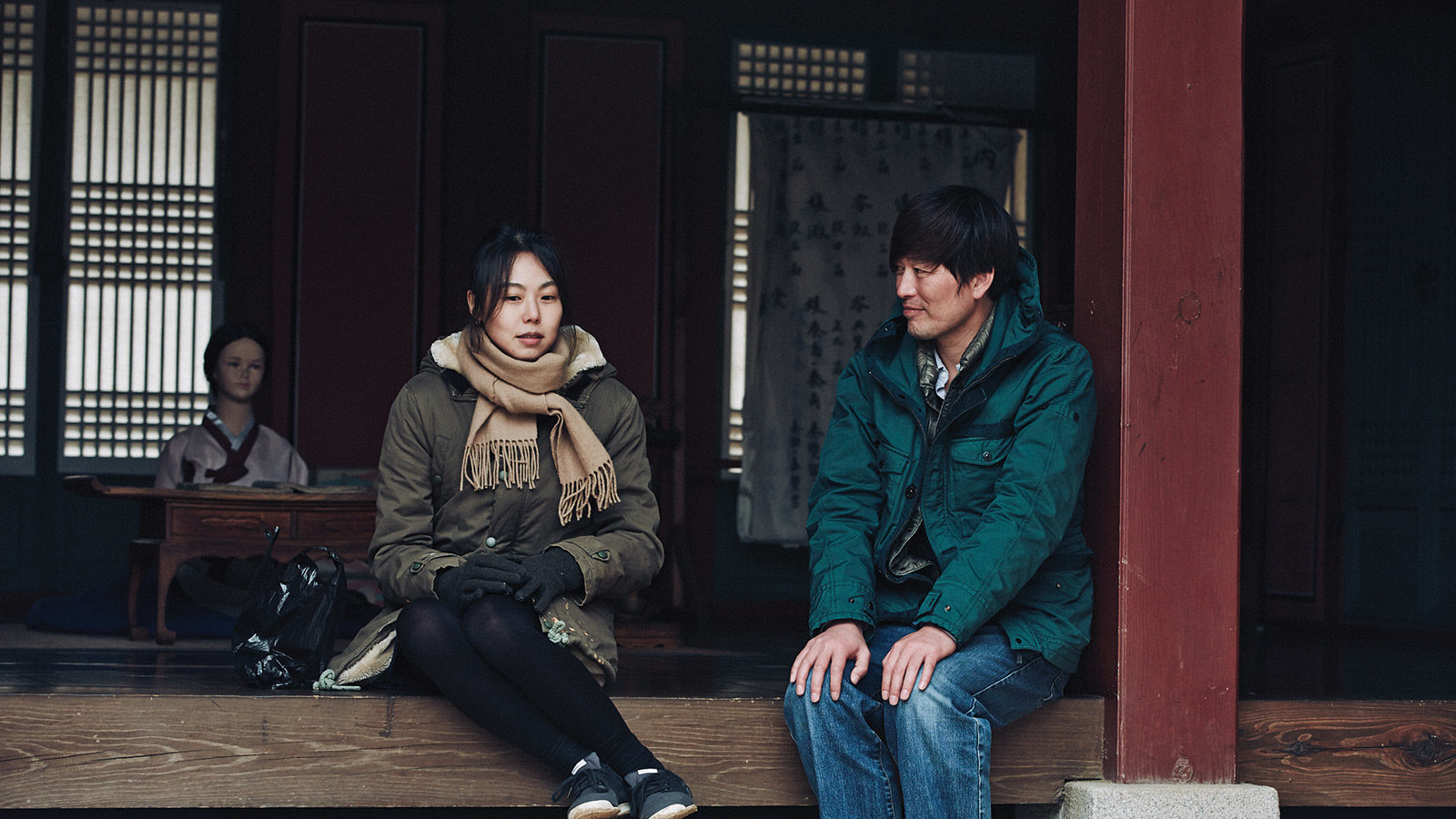
Where the Art Is
The Locarno film festival keeps the pod people at bay
The first film that I saw after rolling into the 68th Locarno International Film Festival wasn’t exactly a discovery: Don Siegel’s 1956 Invasion of the Body Snatchers, on a 35mm print, part of a comprehensive Sam Peckinpah retrospective. (Sam was apprenticing with Siegel during the shoot, and appears in the film in various bit roles.) Adapted from Jack Finney’s science-fiction page-turner, the movie introduced one of the most supple metaphors in pop cinema, with the gradual replacement of the population of a small California town by unfeeling hive-mind doppelgängers ably standing in for blacklist or Communist groupthink, depending on the particular prejudices of the viewer. In fact, its central conceit—trying against all odds to stay awake while battling against being swept up in a wave of consensus—even works as a pretty handy metaphor for the film fest experience.
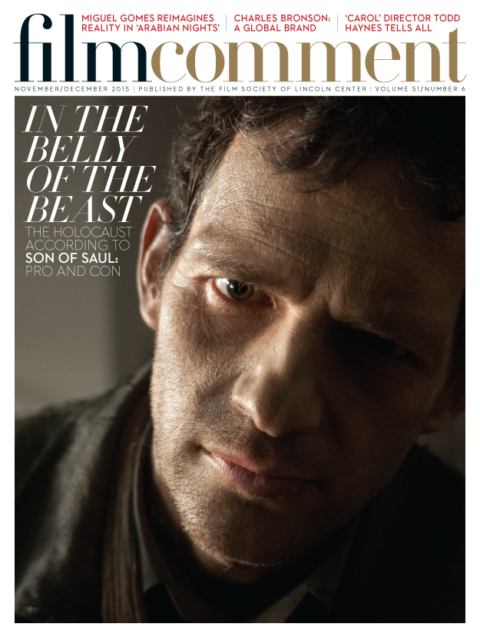
From the November-December 2015 Issue
Also in this issue
Locarno is a Swiss resort town located on the northern shore of Lake Maggiore with a pseudo-Italian character. As the setting for a festival during the dog days of summer, it has the disadvantage of having a mephitic atmosphere comparable to the surface of the sun, but the advantage of being in a city small enough to encourage free and easy exchange between guests in a more egalitarian fashion than usually found at other big European fests—it’s worthwhile for the conversation alone. A few nights after an appropriately bibulous evening with fellow journos that ended with a discussion of whether Hong Sangsoo was a major minor filmmaker or a major filmmaker outright, a jury including actor Udo Kier and director Nadav Lapid cast a decisive vote for the latter designation, awarding the Golden Leopard to Right Now, Wrong Then, Hong’s 17th feature about cinema, love, and (soju-related memory) loss—his first main competition win at a major Euro festival. The film’s bifurcated structure offers two versions of a brief encounter between a married art-film director presenting one of his movies at a screening in Suwon and a younger female painter. Both iterations feature the same cast (Jung Jae-young and Kim Min-hee) but with minor differences in camera placement, performance style, behavior, location choice, and the punctuation of sudden zooms that push in from the camera’s fixed observation point. Each combination of factors leads to a different outcome, an object lesson in the essentialness of the smallest things—though which outcome is the “right” or “wrong” one is left to viewer discretion.
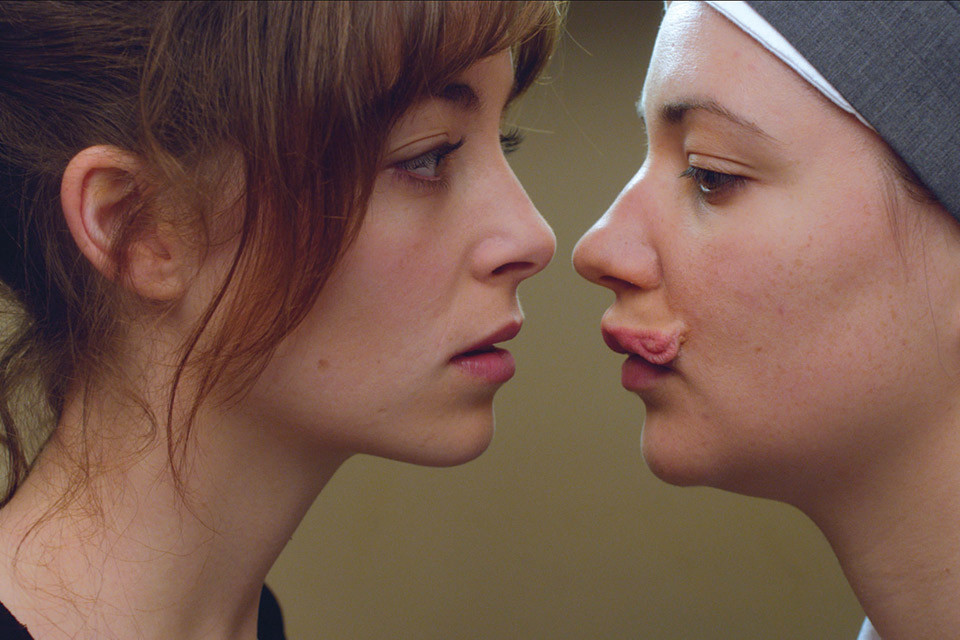
Cosmos
Hong’s cinema, as exemplified in the paired “drafts” of Right Now, Wrong Then, is a cinema of the incipient gesture, the work-in-progress. It may be considered light in comparison to Cosmos, the first film in 15 years from Polish-born, Paris-based Andrzej Zuławski, but then what movie wouldn’t be? For Cosmos might be said to “grapple” with the adapted text by Witold Gombrowicz in the sense that a mastiff grapples with a bone, with the pace set by Jonathan Genet’s wild-eyed, ravenous central performance.
Many of the strongest main competition films came from known quantities, like 74-year-old Zuławski; 81-year-old Otar Iosseliani, author of Chant d’hiver, a serenely deadpan tale of aristocratic tramps and threadbare aristocrats; and the late Chantal Akerman, who was only 65. Her No Home Movie—the only press screening at which I heard a “boo,” though a dozen other unmentionable mediocrities better deserved the honor—is made up of scenes between the filmmaker, almost always obfuscated, and her elderly mother, in Skype conversation or in fly-on-the-wall scenes in the latter’s Brussels home. The conversation, which ranges from quotidian matters to a brief history of the family’s flight from the Nazis, is periodically interspersed with traveling shots passing through an unidentified Middle Eastern desert—the title not only seems to anticipate criticism of the movie, but to evoke the image of the Wandering Jew. Akerman’s film quite readily lends itself to comparison with Madrid-based Sergio Oksman’s O Futebol, the other documentary in the competition, and another devastating portrayal of the relationship between a parent and adult child, in this case the filmmaker and his estranged father, Simão. During a month-long visit with Simão in his hometown São Paulo, Oksman shot a series of fixed-camera vignettes, including many views from the backseat of Simão’s car looking out onto the city’s snaking highways. This shot-a-day routine wasn’t interrupted even when the film’s subject grew sick and died, though the self-imposed strictures serve to intensify rather than restrain the rising emotion of Oksman’s material.
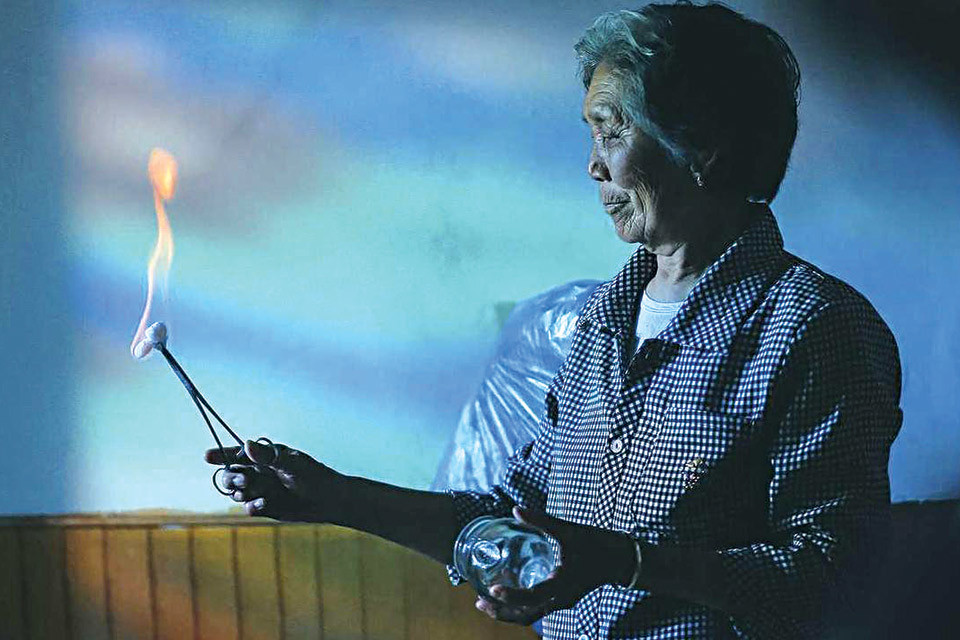
Kaili Blues
Oksman described trying to tap into a personal “Brazilian mythology” in his film—and a similar intention seems to be at work in Berlin-based Palestinian artist Kamal Aljafari’s own homecoming piece, Recollection, which featured in the experimental Signs of Life program. Parsing numerous movies shot in Jaffa, from Israeli output of the early Sixties to Golan-Globus actioners à la Delta Force, Aljafari isolates and slows down details of street scenes, and in doing so finds traces of his own memories and even familiar faces, effectively following Thom Andersen’s exhortation in Los Angeles Plays Itself to “appreciate fiction films for their documentary revelations.” In the same program, Zach Weintraub’s comedy Slackjaw was worthy of note. Set in the Pacific Northwest, his surreal send-up of exhibitionist “activist” gestures supplied a dose of American irreverence when I really needed one.
Weintraub was among the younger directors on hand, along with Bi Gan, the 26-year-old creator of Kaili Blues and winner of the Best Emerging Director prize. (I always get a laugh from this label, with its air of creatures emerging from primordial ooze.) I heard some compare the film to the work of Apichatpong—it uses the belated opening-credit gag from Blissfully Yours—and the presence of a few compositions by Lim Giong alongside the film’s diegetic musical patchwork (children’s songs, a shambling band performance, indigenous Miao horns) suggests a debt to Hou Hsiao-hsien. But I was mainly reminded in an abstract way of early Bertolucci, if only because Bi comes from poetry and, in each of his film’s distinct movements, exhibits a clear desire to astonish. This is most markedly apparent in the centerpiece, a 40-minute-plus sequence shot that weaves back and forth between ridiculous and sublime. Enlisting the cooperation of an entire village in order to pull off this extravagant, attention-getting, and occasionally logic-defying feat (the trajectory of one of the tracked characters unaccountably doubles back) must have required no small amount of connivance, and in fact Bi was shooting in the town where he grew up, with a cast made up largely of family members. It’s a homegrown production, but with real-movie ambition—and that’s always in short supply.



